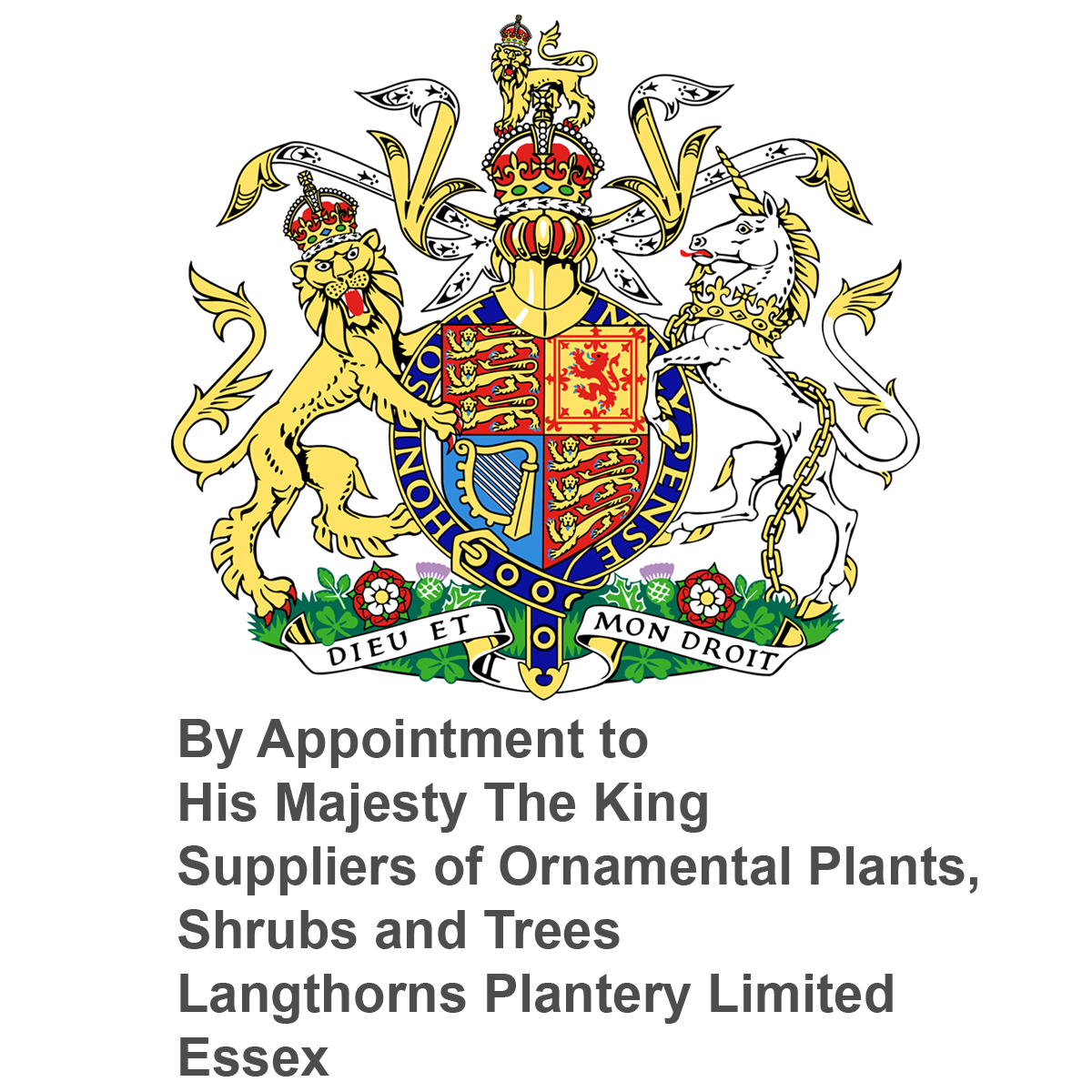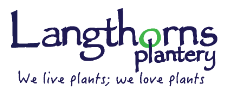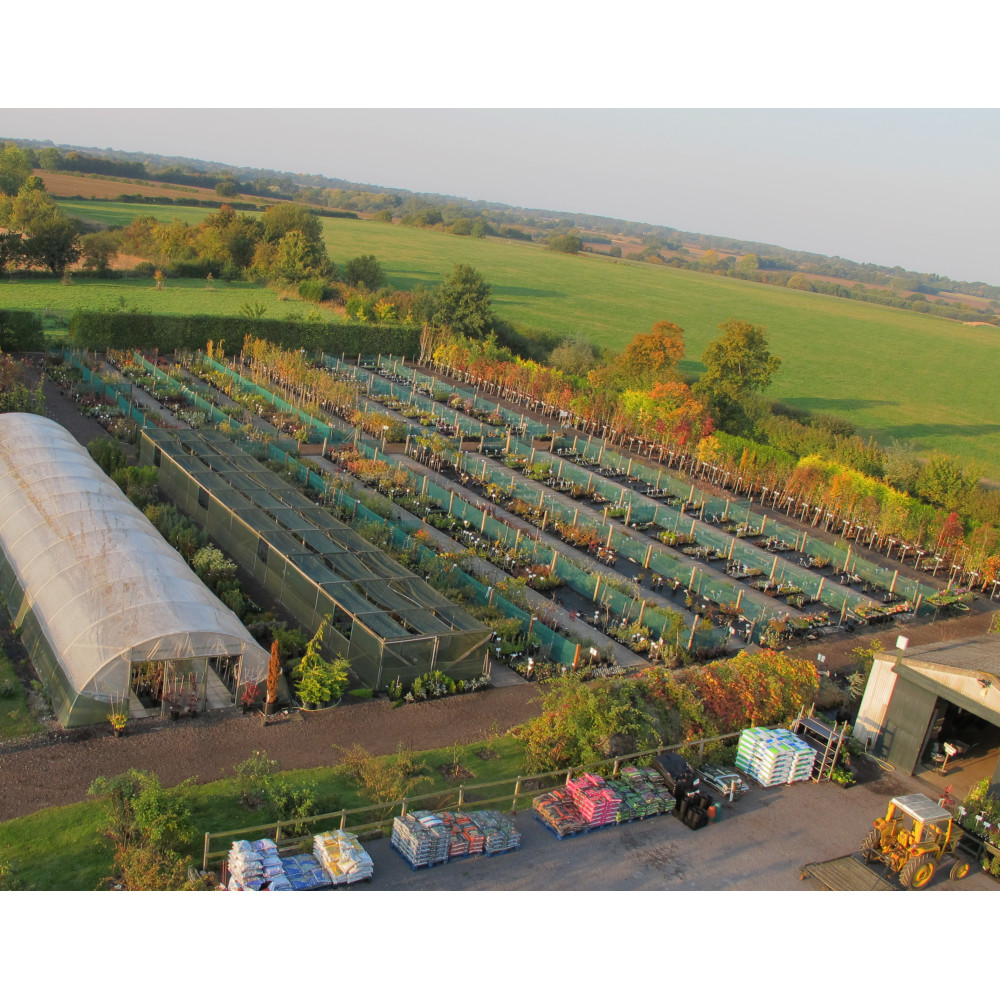Opening Statement
'We live plants, we love plants'; we are passionate about the environment and what we can do to enhance wildlife and reduce the negative impacts of business operations. Together with our customers, we work towards a sustainable future for our benefit and future generations.
In a nutshell
Adhere to and exceed all legislation relating to environmental policy and codes of practice.
Reduce energy and resource consumption where the business can practicably and reasonably comply with yearly reviews.
Minimise all forms of wastage and recycle all possible materials, thereby sending as little to the landfill as possible.
Use all sustainable growing media and provide information regarding this topic to our customers.
Stock items are sourced ethically, are beneficial to the environment, and are presented to customers in an informed manner.
Adopt alternative IMP strategies for controlling pests and diseases and for all operators to be highly skilled.
The business operators have positive influences on local biodiversity and beneficial impacts on the local and broader ecology.
Water stewardship and efficiency are fundamental principles we hold at the business and impart throughout the family.
Langthorns operates with an equal-opportunity approach to employment, and this ethos is demanded throughout the supply chain.
The efficiency of all matters relating to the environment is of utmost importance to the business and is expected with whomever we operate.
Langthorns Plantery is committed to high-quality plant growth and will endeavour to undertake all reasonable research to produce those plants in the most sustainable way possible.
Make a reasonable effort to stock UK-grown plants and to propagate in-house for sustainably produced plants.
We pledge to strive for all and any improvements outlined in our sustainability policy.
'We live plants, we love plants!' and will support all those who do as well.
And now, the depth and breadth…
1. Environment
I. Pollution
The organisation and its employees consistently review actions to reduce any possible discharge or emissions to land, watercourses, and air during the company operations. Our telehandler has been obtained as a favourable, more efficient replacement to the previous machinery and where possible employees share commutes to minimise overall journey times. Langthorns Plantery complies with all relevant legislation relating to environmental management and aims to exceed these targets.
II. Waste and recycling
Langthorns endeavours to recycle all materials possible with a local waste contractor, thereby minimising waste sent to landfills. Senior management and staff aim to deliver a high standard of recycling relating to all growing materials, office waste and the staff break room. All customers and parties in the supply chain are encouraged to reuse, repurpose, or return any non-recyclable plastic where it is fit for purpose. The Plantery policy is such that all pots are reused within the business or made available to local schools and gardening clubs for free. This ensures that the maximum possible recyclable waste is processed with our contractor and that all pots have been utilised thoroughly in their operational lifespan. Additionally, all plants arising and spent growing media are composted on site, and no organic material is sent to landfill. Viable composts are used within the grounds to ameliorate the land and cycle nutrients back into the local environment.
Figure 1: Langthorns waste by volume and recycle progress
III. Sustainable procurement
Materials for sale and used in production are sourced from sustainably conscientious suppliers. As a preference, wood and cardboard products bearing the Forest Stewardship Council (FSC) certification are sourced. All cardboard used in the processing of deliveries is 100% recycled material. In addition, cardboard materials from a local supermarket are utilised to benefit customers during the transit of their purchases. Any surplus materials are recycled, and our customers expect the same behaviour. Langthorns Plantery utilises the suppliers' consolidated shipments, where stock is held and sent out as fewer larger deliveries to limit emissions. Plants from the supply chain are from countries with no water scarcity, as outlined by the United Department of Economic and Social Affairs (UNDESA, 2015), and preference is given to any UK-produced and sustainable products. As far as reasonably practicable, Langthorns endeavours to produce cuttings and seed-raised stock in-house and favours UK-grown produce to increase the business sustainability and reduce the carbon footprint.
IV. Education
Our friendly and knowledgeable staff aim to share our wealth of information with customers, helping them make correct plant choices and be informed about the best methods for aftercare. This serves the customer reasonably by enhancing their gardens and should also assist patrons in minimising their consumption of resources by adopting the best aftercare practices.
V. Resource consumption and carbon footprint
Langthorns Plantery uses very little electrical light and natural gas: all-natural light is utilised throughout the growing structures, and supplementary heating is only provided to those plants requiring extra protection to survive the British weather in the winter period. From a longer-term perspective, to reduce environmental impact, the business follows the guidance from the Defra' Small Business User Guide: Guidance on how to measure your greenhouse gas emissions' (Defra, 2012).
Figure 2 – Energy & emissions for Langthorns Plantery years 2015-23
Langthorns Plantery installed a solar power renewable energy source in 2023 as part of its investment to reduce its carbon footprint and reduction programme. Further improvements & investments are under review, and introduction would be considered if conditions meet the company policy for capital return on investment. Furthermore, items stocked for resale are made from renewable sources as much as they can meet market demands.
VI. Water efficiency
Overall, water stewardship is a crucial mindset embedded in our philosophy, and water efficiency is a fundamental cornerstone of the business, which is instructed to all of our staff. Langthorns Plantery draws water from a borehole on site to irrigate crops. As such, rainwater collected from surfaces can soak back into the natural aquifer. The primary method of watering is by hand by highly skilled staff; this individual watering method is labour-intensive but does mean each plant receives the correct amount of water. This minimises wastage and is an additional opportunity for crop inspections, thereby identifying and remedying any issues at the earliest stages possible. Langthorns use automated irrigation systems to irrigate the tree lines via drippers; however, this is only done during the mornings and evenings. This allows for better soil infiltration and water loss through evaporation. Transpiration rates are at their lowest at these times of the day (Barley, 2018). Overhead sprinklers can also be adopted on the Plantery but only as part of the watering process for those crops or as a leaf hydrating exercise. This is also subject to the time of the day and only if the wind speed/direction allows for its practical use. Any leaks in the irrigation facilities and hoses are also repaired upon detection, and the watering of specimens around the site is managed on a priority basis. Mulches are applied throughout the year, and only those trees and shrubs which could suffer are watered by hand; similar guidance is given to our customers.
2. Growing media
I. Peat
Langthorns Plantery, over the past twenty years, has conducted many experiments with suppliers on the use of peat-free composts; this has now seen us move to a selection of peat-free growing media. However, this is still an area of concern to Langthorns and the industry, where increasing research and development is still being undertaken. Senior management is aware of the horticultural industry's commitment to the 2030 target of being peat-free (Gov, 2010) and how this is a commercially sensitive topic. Since 2016, we have extensively tested with various suppliers to provide peat-free composts, and we now use peat-free mediums to grow all our plants on-site. We are also making it available with a range of other peat-free products.
II. Trials
At Langthorns, we are committed to high-quality plant growth and, through conducting trials, have found many positive results. The range of new growing materials shows many positive signs, and we believe that it is the case of finding which plant is best suited to what growing medium. Most recently, Langthorns Plantery has decided to trial a new source of growing medium for internal use and retail sales based upon a composition of UK bracken and sheep wool https://www.dalefootcomposts.co.uk/. The hydroscopic properties of the compost result in better water conservation (Dalefoot Composts, 2018) and being sustainably managed in the UK will have a significantly lower ecological footprint.
III. Suppliers
Many of the composts used on-site and available for purchase are locally sourced, adding to our approach to reducing the company's carbon footprint. Field Compost is a local Cambridgeshire-based business with whom we have a good relationship whereby we use, sell and promote their products, and all of their produce is 100% peat-free https://www.fieldcompost.co.uk/ (Field Co, 2018).


